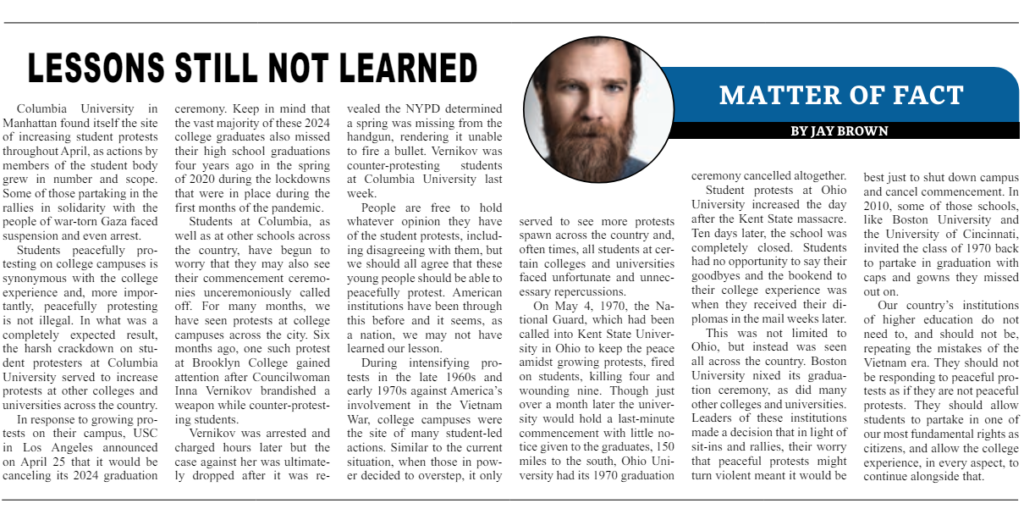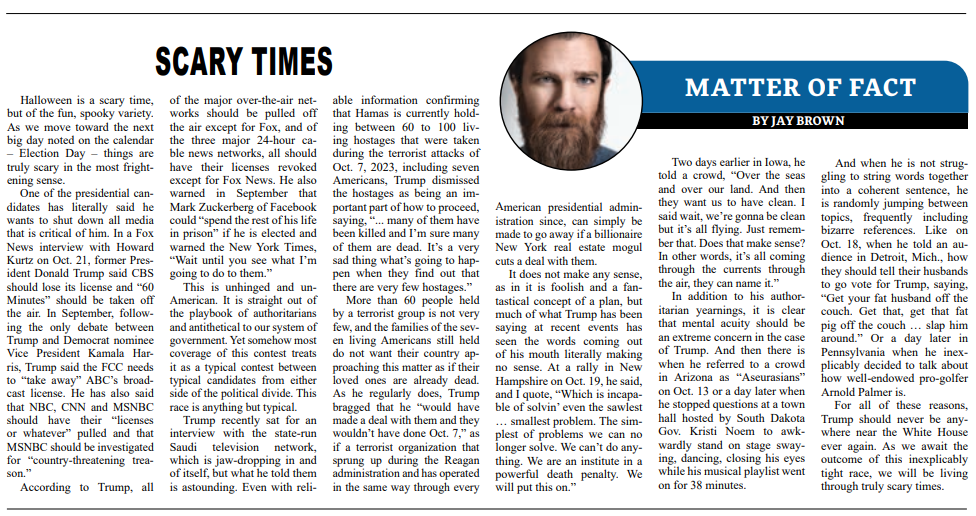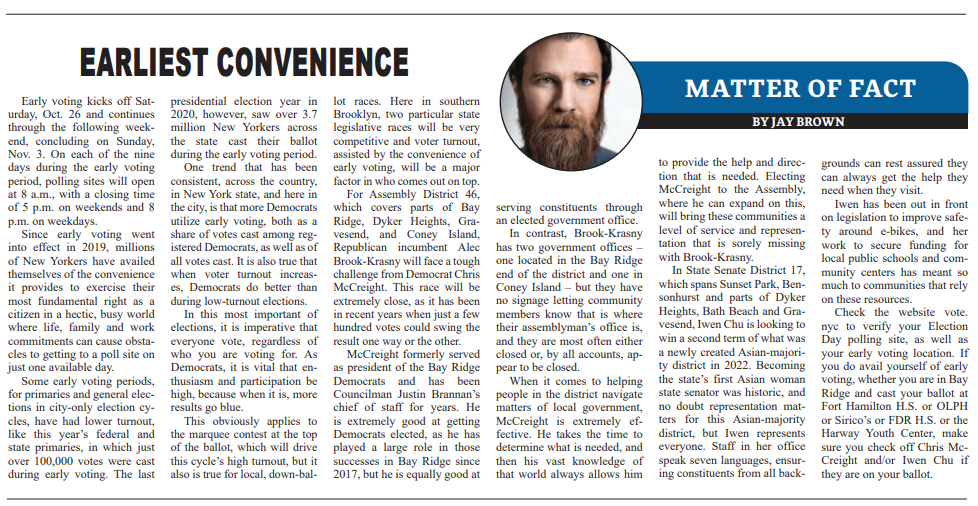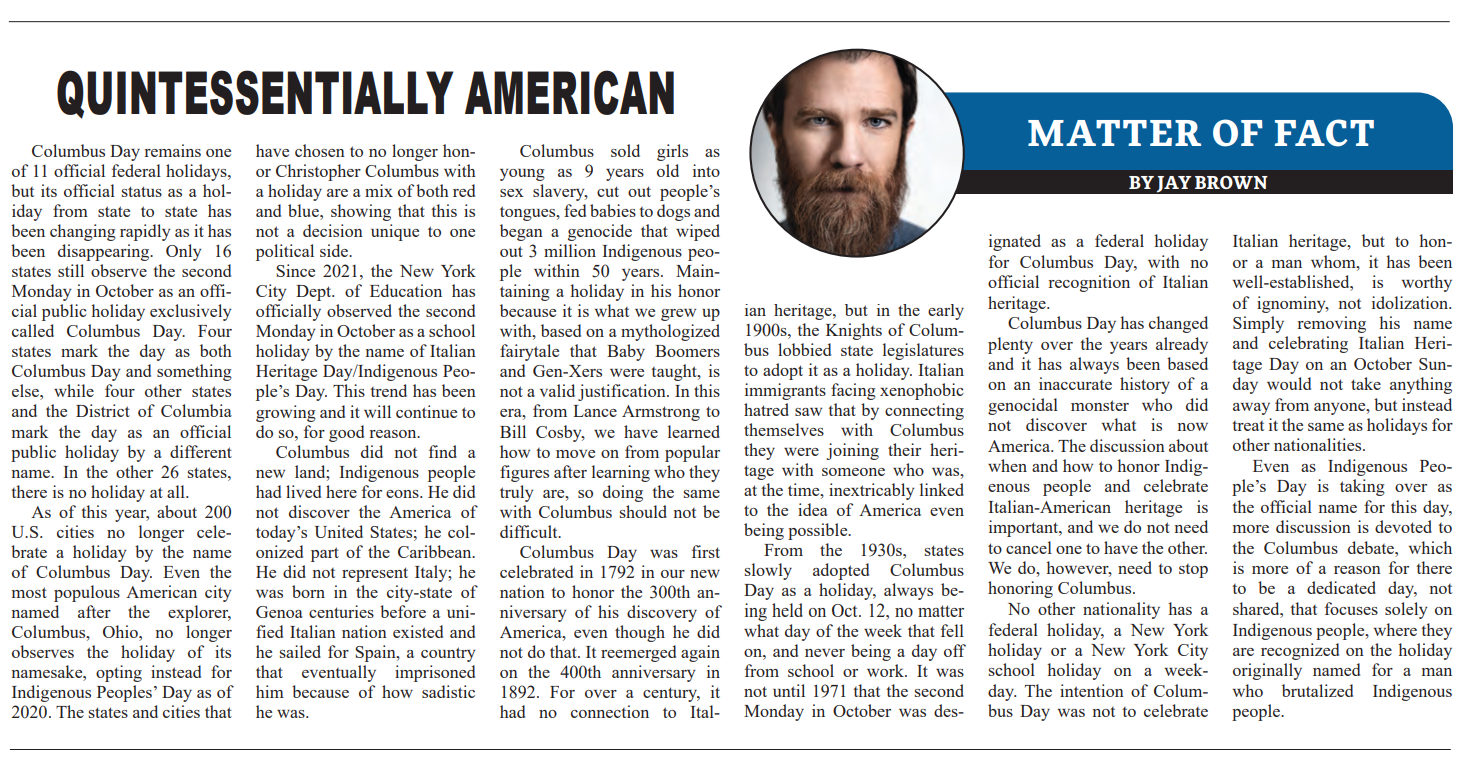This column, from the weekly opinion piece MATTER OF FACT, first appeared on BrooklynReporter.com, the Home Reporter and Spectator dated May 3, 2024

Columbia University in Manhattan found itself the site of increasing student protests throughout the month of April, as actions by members of the student body grew in number and scope. Some of those partaking in the rallies in solidarity with the people of war torn Gaza faced suspension and even arrest.
Students peacefully protesting on college campuses is synonymous with the college experience and, more importantly, peacefully protesting is not illegal. In what was a completely expected result, the harsh crackdown on student protesters at Columbia University served to increase protests at other colleges and universities across the country.
In response to growing protests on their campus, USC in Los Angeles announced on April 25 that they would be canceling their 2024 graduation ceremony. Keep in mind that the vast majority of these 2024 college graduates also missed their high school graduations four years ago in the spring of 2020 during the lockdowns that were in place during the first months of the pandemic.
Students at Columbia, as well as at other schools across the country, have begun to worry that they may also see their commencement ceremonies unceremoniously called off. For many months, we have seen protests at college campuses across the city. Six months ago, one such protest at Brooklyn College gained attention after Councilmember Inna Vernikov brandished a weapon while counter-protesting students.
Vernikov was arrested and charged hours later but the case against her was ultimately dropped after it was revealed the NYPD determined a spring was missing from the handgun, rendering it unable to fire a bullet. Vernikov was counter-protesting students at Columbia University last week.
People are free to hold whatever opinion they have of the student protests, including disagreeing with them, but we should all agree that these young people should be able to peacefully protest. American institutions have been through this before and it seems, as a nation, we may not have learned our lesson.
During intensifying protests in the late 1960s and early 1970s against America’s involvement in the Vietnam War, college campuses were the site of many student-led actions. Similar to the current situation, when those in power decided to overstep, it only served to see more protests spawn across the country and, often times, all students at certain colleges and universities faced unfortunate and unnecessary repercussions.
On May 4, 1970, the National Guard, who had been called into Kent State University in Ohio to keep the peace amidst growing protests, fired on students, killing four and wounding nine. Though just over a month later the university would hold a last-minute commencement with little notice given to the graduates, 150 miles to the south, Ohio University had their 1970 graduation ceremony canceled altogether.
Student protests at Ohio University increased the day after the kent State massacre. Ten days later, the school was completely closed. Students had no opportunity to say their goodbyes and the bookend to their college experience was when they received their diplomas in the mail weeks later.
This was not limited to Ohio, but instead seen all across the country. Boston University nixed their graduation ceremony, as did many other colleges and universities. Leaders of these institutions made a decision that in light of sit-ins and rallies, their worry that peaceful protests might turn violent meant it would be best just to shut down campus and cancel commencement. In 2010, some of those schools, like Boston University and the University of Cincinnati, invited the class of 1970 back to partake in graduation with caps and gowns they missed out on.
Our country’s institutions of higher education do not need to, and should not be, repeating the mistakes of the Vietnam era. They should not be responding to peaceful protests as if they are not peaceful protests. They should allow students to partake in one of our most fundamental rights as citizens, and allow the college experience, in every aspect, to continue alongside that.



